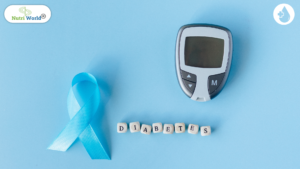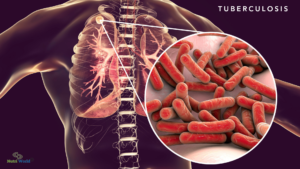By Nutriworld | Dt. Dipanwita Saha
Infertility is a deeply personal and often emotionally exhausting experience. Whether you’ve been trying to conceive for months or years, facing the unknown can be frustrating and overwhelming. According to the World Health Organization, approximately 1 in 6 people worldwide experience infertility at some point in their lives. Yet, the reasons behind it can vary drastically—from everyday habits to genetic predispositions.
This article dives into 9 root causes of infertility—including both male and female factors—and how each one can impact your ability to conceive.
1. Chronic Stress and Mental Health
Stress is often overlooked in fertility discussions, yet it plays a major role. High levels of cortisol, the body’s primary stress hormone, can suppress reproductive hormones like GnRH (gonadotropin-releasing hormone), which is crucial for ovulation and sperm production. Women may experience missed or irregular periods, while men may have reduced sperm count and libido.
⏩ Solution: Incorporating stress-relieving practices such as yoga, mindfulness, therapy, or journaling can restore hormonal balance and improve fertility outcomes.
2. Hormonal Imbalances
Fertility depends heavily on a well-functioning hormonal system. For women, conditions like PCOS (Polycystic Ovary Syndrome), thyroid dysfunction, or high prolactin levels can interfere with ovulation. For men, imbalances in testosterone or other androgens can reduce sperm quality and quantity. Common symptoms of hormonal imbalance include irregular cycles, acne, hair thinning, weight gain, or erectile dysfunction.
⏩ Solution: Hormonal testing, lifestyle changes, and targeted medications or supplements can help regulate hormones and restore reproductive health.
3. Poor Diet and Nutritional Deficiencies
Nutrients are the foundation of reproductive health. Diets low in essential vitamins and minerals—like zinc, selenium, vitamin D, iron, and folate—can lead to ovulatory issues in women and sperm abnormalities in men. Processed foods, excessive caffeine, sugar, and trans fats can also negatively affect fertility hormones.
⏩ Solution: A balanced, whole-food diet rich in leafy greens, healthy fats, lean protein, and antioxidant-rich fruits can help support reproductive function. In some cases, supplementation may be necessary.
4. Sedentary Lifestyle and Obesity
Being either overweight or underweight can disrupt fertility. Fat cells produce estrogen, and excess fat can lead to estrogen dominance in women, interfering with ovulation. In men, obesity is linked to lower testosterone levels and poor sperm parameters. A sedentary lifestyle also contributes to metabolic disorders, which can further impair reproductive health.
⏩ Solution: Aim for at least 30 minutes of moderate physical activity most days of the week. Even small changes like walking, stretching, or yoga can make a difference.
5. Smoking, Alcohol, and Substance Use
Cigarettes contain harmful chemicals that damage eggs and sperm at the cellular level. Smoking accelerates egg loss in women and reduces sperm quality in men. Alcohol, when consumed excessively, disrupts hormone levels, liver function, and nutrient absorption. Recreational drugs like marijuana, cocaine, or anabolic steroids can also interfere with fertility.
⏩Solution: Quitting smoking and moderating alcohol intake (or eliminating it entirely during conception efforts) is crucial for both partners.
6. Reproductive System Disorders
In women, infertility can be caused by conditions that affect the reproductive organs, including:
- Endometriosis: Tissue similar to the uterine lining grows outside the uterus, causing inflammation and blocked fallopian tubes.
- Uterine fibroids or polyps: These can distort the uterine cavity and interfere with implantation.
- Blocked fallopian tubes: Often a result of past infections or surgeries.
⏩ Solution: Medical evaluations like ultrasounds, laparoscopy, or semen analysis can help diagnose these issues. Surgical or medical interventions may be necessary.
7. Environmental Toxins and Endocrine Disruptors
We are constantly exposed to chemicals that can interfere with hormonal function. These include BPA (found in plastics), phthalates (in cosmetics and personal care products), and pesticides (in food and the environment). These endocrine-disrupting chemicals (EDCs) mimic or block natural hormones, affecting fertility in both men and women.
⏩ Solution: Opt for glass or stainless steel containers, eat organic when possible, and switch to natural personal care products.
8. Age-Related Decline
Age remains one of the most significant factors affecting fertility—especially for women. Female fertility starts to decline in the early 30s and drops more sharply after 35 due to lower quantity and quality of eggs. Male fertility also declines, but usually later and more gradually.
⏩ Solution: If trying to conceive later in life, early fertility assessments can guide the right course of action. Assisted reproductive technologies (ART) like IVF may be recommended in some cases.
9. Genetic and Autoimmune Factors
Sometimes, infertility is caused by underlying genetic or autoimmune conditions that aren’t immediately obvious. For example:
- Turner syndrome, Klinefelter syndrome, or Y chromosome microdeletions can impact reproductive development.
- Autoimmune disorders like lupus or Hashimoto’s thyroiditis may cause the immune system to attack reproductive tissues or interfere with implantation.
- Celiac disease, if undiagnosed, can also cause infertility by disrupting nutrient absorption and hormonal balance.
⏩ Solution: Genetic testing, autoimmune screening, and working closely with a fertility specialist or endocrinologist can help diagnose and manage these conditions.
🔹Final Thoughts: Understanding Your Body is the First Step
Infertility isn’t just a physical issue—it’s emotional, relational, and deeply personal. But by identifying and understanding the root causes, individuals and couples can take proactive steps toward restoring fertility or seeking the right support.
If you’re struggling to conceive, don’t wait too long before consulting a fertility expert. In many cases, lifestyle changes, medical treatment, or nutritional support can make a significant difference. And most importantly, remember: fertility journeys are unique—there’s no one-size-fits-all timeline or solution.

Hello! I'm Dietician Dipanwita Saha is the founder of Nutriworld and a dedicated clinical dietitian. I focus on helping individuals improve their health through personalized diet plans that are based on scientific principles. I believes that proper nutrition is crucial for healing and maintaining a balanced lifestyle, whether someone is recovering from an illness or managing a health condition.
I provide personalized diet consultations to help you reach your health goals, such as managing weight, recovering from illness, or improving overall wellness. My method is based on scientific nutrition and includes practical meal plans tailored to your lifestyle.
Subscribe to my YouTube channel for more practical diet tips, healthy recipes, and expert insights. I regularly upload videos to simplify nutrition and help you make informed food choices.






